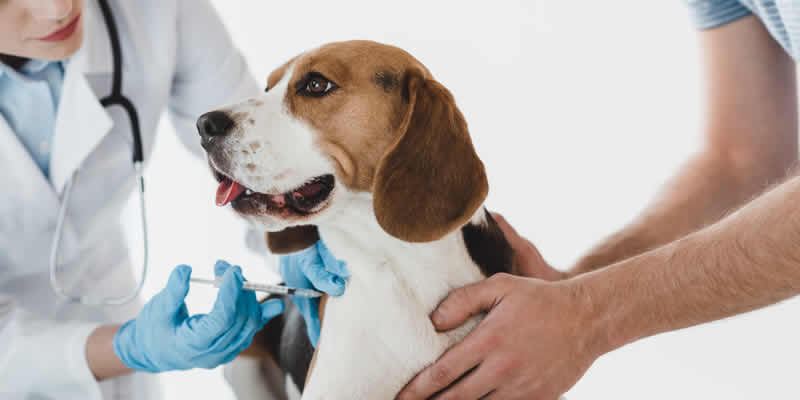A vaccination programme may need to be rolled out among cats and dogs to help prevent the spread of COVID-19, according to a group of scientists.
Research has shown that coronavirus can jump to domesticated animals and a warning has been issued there is a “significant long-term risk to public health” if the virus keeps mutating and starts infecting more animals.
Teams from the University of East Anglia (UEA), Norwich-based research facility the Earlham Institute and the University of Minnesota have come together to write an editorial in the journal Virulence about the subject.
They wrote: “It is not unthinkable that vaccination of some domesticated animal species might… be necessary to curb the spread of the infection.”
Millions of mink were culled last year in Denmark when a link was found between the farmed animal and a coronavirus variant.
One of the editorial’s authors, Cock van Oosterhout, professor of evolutionary genetics at UEA, said: “It makes sense to develop vaccines for pets, for domestic animals, just as a precaution to reduce this risk.
“What we need to be as a human society, we really need to be prepared for any eventuality when it comes to Covid. I think the best way to do this is indeed consider development of vaccines for animals as well.
“Interestingly the Russians have already started to develop a vaccine for pets, which there’s very little information about.”
Research has found some cats and dogs have become infected by COVID-19 in China and Hong Kong, but the majority either display mild or no symptoms.
- New COVID-19 vaccine found to be nearly 90% effective
- People prone to allergic reactions urged to avoid COVID vaccine
The Centers for Disease Control and Prevention (CDC) advises that should a pet become infected then they should stay home, unless veterinarian care is needed. If this the case, the surgery should be notified ahead of the visit
Human medical centres, places of education and groomers should all be avoided by infected animals. Other pets and humans within the household should avoid coming into contact with the infected animal they should be given separate bedding, feeding and toileting areas to other pets.





